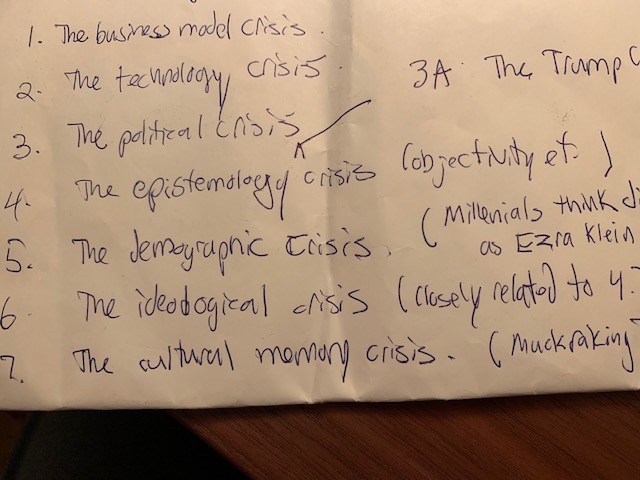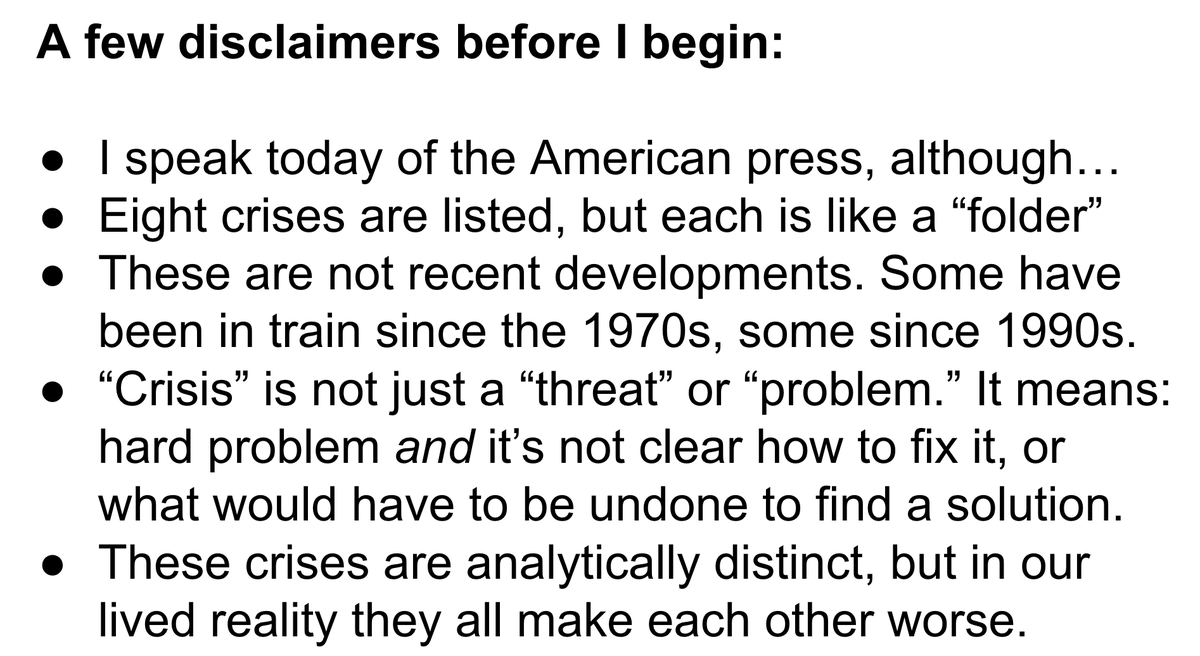The key words: "affect the place." 12/
He has what he needs. 13/
A revealing moment came when @maxlinsky pressed Baquet about an institutional core that stays constant. "What I hear you saying is you got to hold on to what's core and be willing to change what's outside of that." But... 14/
"It happens all the time," Baquet replied. Gay rights, transgender people, civil rights. But that is an answer to a different question. 15/
END





